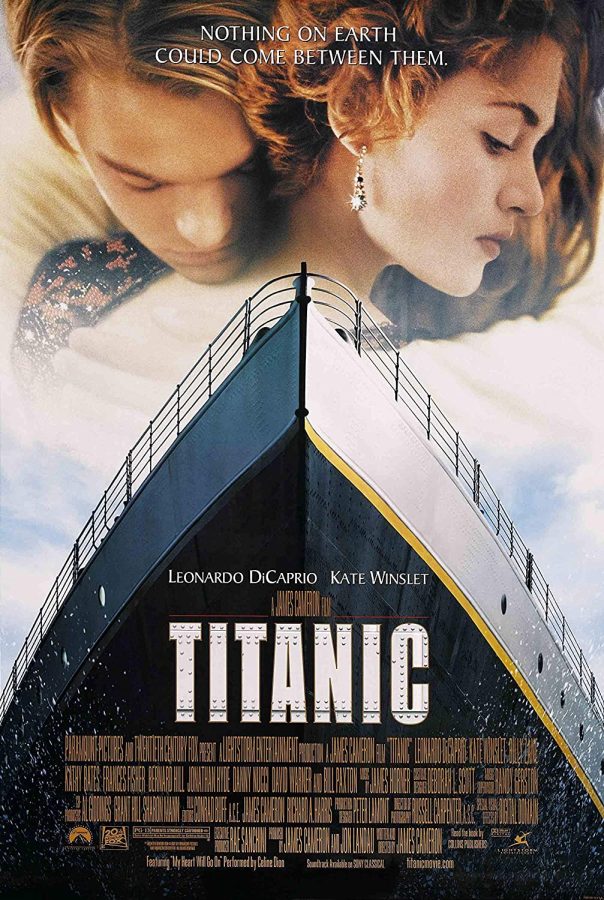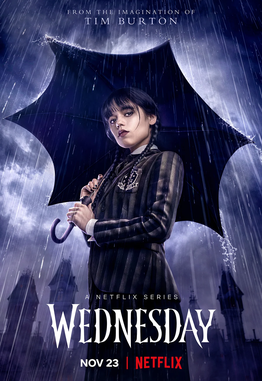The Unending Legacy of ‘Titanic’
James Cameron’s epic romance (re)captures the magic of the movies, 25 years later
PARAMOUNT PICTURES
Titanic’s re-release has brought back fans to theaters in celebration of the film’s iconic impact over the last 25 years.
March 2, 2023
In celebration of Valentine’s Day, James Cameron’s iconic 1997 discourse-spawning romance-turned-disaster-flick “Titanic” received a 25th-anniversary remaster, playing for the first time ever in high-frame-rate IMAX 3D.
Cameron has become notorious for pushing the boundaries of film technology. His most recent release, “Avatar: The Way of Water,” was famously delayed for nearly a decade after its predecessor in order to develop the technology to digitally recreate realistic water. To his critics, however, this reliance on the technological wow-factor has come at the expense of nuanced storytelling and realistic dialogue.
“Titanic” has by no means escaped this feedback. Commentators find faults in the by-the-books romance and the sudden tone shift halfway through, as the Titanic strikes an iceberg and begins its historic descent to the bottom of the sea. This criticism is, at face value, undeniable: Jack (Leonardo DiCaprio) and Rose’s (Kate Winslet) romance is an archetypal star-crossed lovers tale that ends exactly as one would expect (spoiler alert: Jack dies). On the value judgment, though, the critics are wrong — the archetypal nature of the film is a feature, not a flaw.
Just as a 101-year-old Rose tells her story to Brock Lovett (Bill Paxton) and company in order to convey her experience on Titanic, the ship, let me tell you an equally important story about my experience with “Titanic,” the film. It’s been 84 — nine, probably — years.
I was home “sick” from school — Ferris Bueller was my role model as a child — scrolling through Netflix for a film to watch, when I stumbled across Cameron’s “Titanic.” I’d heard of it and didn’t have anything better to do, so I clicked on it and started watching.
Immediately, I was captivated. Even on my laptop, the striking recreation of the Titanic captured my future-history major imagination — and young Leo certainly didn’t hurt. Even knowing that disaster was coming, I held out hope that maybe the ending would be different, at least for these two. Of course, the ending doesn’t change — the Titanic sinks, and Jack freezes to death in the water (for the record, the door was not, in fact, big enough for both of them).
When I reached the end of the film, I didn’t close my laptop, nor did I choose a different movie to watch, like one would expect. Rather, I dragged my mouse right back to the beginning of the progress bar and started it over again. When I finished the second viewing, I did the same thing. By the end of the day, I’d watched the full three and a half hours of “Titanic” three times, spending over 10 hours watching one movie. And I don’t regret one single second of it.
I’ve watched “Titanic” several times over the nine years since, and it has yet to lose its magic. There’s no reason for me to question how the film will end, yet I do. Every time I watch, I spend the entire runtime on the edge of my seat, wondering if the ship will actually sink and, if it does, if both Jack and Rose will survive. Despite knowing the ending, the film captivates my attention and immerses me in the tragedy. (As an aside, speaking to the immersion, the ship sinks in real time: There is almost exactly one hour between Captain Andrews declaring that Titanic will go under in that amount of time and when it actually does.)
The term “blockbuster” today has become nearly synonymous with “superhero,” as — aside from films like “Top Gun: Maverick” and “Avatar: The Way of Water,” which are both sequels — Marvel Studios dominates the theatrical landscape year-round. However, the enduring legacy of “Titanic” has proven it to be an anomaly — an original, standalone blockbuster, with longstanding appeal across demographics.
The immersion that Cameron manages to craft can only truly be experienced on the big screen: It’s impossible not to brace for impact as you hear windows crack, preparing for an onslaught of water to come rushing in. It’s clear that the blood-curdling screams — and, on a more positive note, the thundering “Love Theme,” Celine Dion’s iconic ballad “My Heart Will Go On” — were simply not made for AirPod speakers.
If you’re able, see “Titanic” in theaters — it’s a once-in-a-lifetime experience, a true “ship (film) of dreams.” But, if you miss it, don’t worry: Cameron’s immersive spectacle, pushing up against the boundaries of what “film” is and can be, holds up whether you’re watching it alone on a laptop or in a packed theater in IMAX 3D. With that said, don’t wait another 84 years to see it.
















